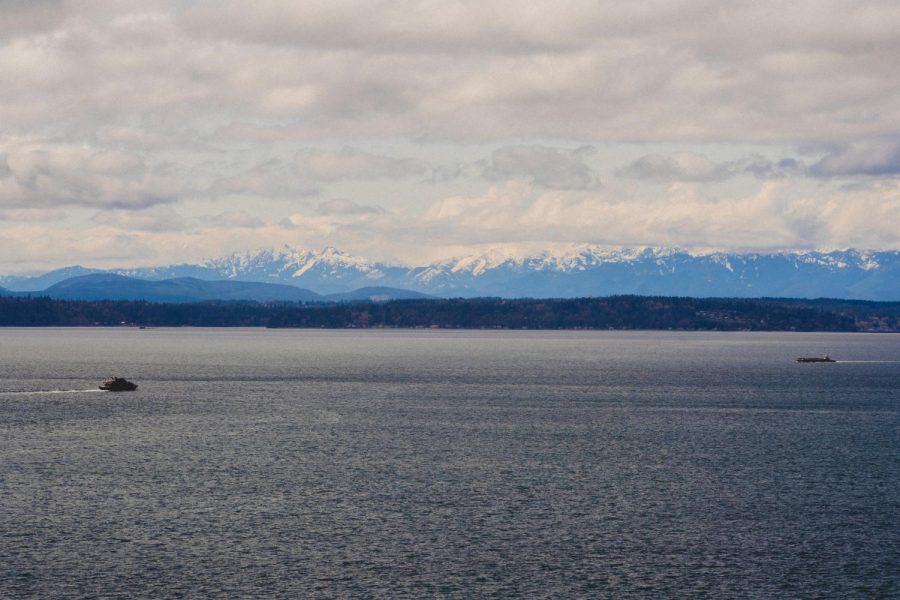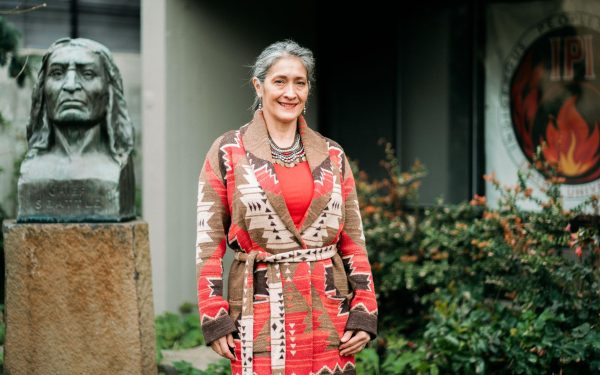The Effort to Bring Tokitae Home
The Puget Sound.
The Miami Seaquarium and the nonprofit organization Friends of Toki have released plans to return the orca Tokitae, also known as Lolita, to Washington’s Puget Sound. The current plan is to release her into a 200 yard enclosure before upgrading her to a 15-acre netted whale sanctuary. From there, it will be determined whether she can rejoin her pod in the wild.
Lummi Nation, one of the Coast Salish tribes in Washington, has a strong connection to the orca whose Lummi name is Sk’aliCh’elh-tenaut. They also refer to her as Tokitae, and in the past, the Lummi people have led campaigns to free her.
Currently believed to be 57 years old, Tokitae was captured at the age of four near Whidbey Island and was later sold to the Miami Seaquarium. After decades of performing, she was retired from exhibition shows last spring.
Southern resident orcas in the Pacific Northwest are genetically distinct from orcas found elsewhere, and are members of one of three pods. Each pod functions similarly to a family, with distinct travel patterns, vocalizations and relations with other whales. Tokitae is believed to be a member of the L pod, but there are concerns over whether or not she will be able to fully reassimilate.
Kristin Hultgren, associate professor of biology at Seattle University, pointed out two components that are critical for Tokitae’s return to the wild.
“There’s the social component of returning [Tokitae] (trying to get her re-acquainted with her pod) and also the ecological component (she will have to learn to dive and hunt for live prey again in a much larger area than the tiny Seaquarium she has been living in),” Hultgren wrote to The Spectator.
Abigail Coffey, a first-year law student and the president of the Seattle U Law School’s Student Animal Legal Defense Fund, further explained these components by discussing some of the challenges Tokitae may face returning to the L pod, including adjusting to the language the rest of the pod speaks.
“[Other challenges are] if she can’t hunt [or] if she can’t swim long distances because she’s only swam the length of her pool for the last 53 years,” Coffey said.
Maggie Johnson, a fourth-year environmental studies major, has interest in the hardships that the remaining Southern Resident orcas are facing, in general. With only 73 left, the population is close to the lowest it has ever been, according to Johnson. This is primarily due to the lack of salmon, vessel traffic and pollutants.
“There is just not enough salmon to go around,” Johnson said. “The [number] of vessels in the Salish Sea affects their ability to echolocate and hunt. Also, bioaccumulation of different substances that we dump into the waters [plays a role].”
Similar to Coffey, Johnson believes food and hunting will be major hardships for Tokitae. Considering the current lack of salmon, Johnson presumes that the current wild orcas have sharpened hunting skills that Tokitae lacks.
There is also conversation about whether attempting to return Tokitae to the wild is a good idea. Her case is a reminder of Keiko, the star of the movie “Free Willy.” After being kept in captivity, Keiko was released to Icelandic waters but died a few years later after failing to adapt.
Advocates for her release argue that Tokitae and Keiko’s situations are vastly different. However, groups like Truth4Toki, which is composed of marine mammal experts, many of whom have cared for Tokitae in the past, are still opposed.
The group is concerned about diseases that the Puget Sound carries as well as Tokitae exposing local orcas to illnesses that they have never encountered before. They also worry that she would not survive the trek back to Washington. Instead, they are suggesting her relocation to a facility in-state, such as SeaWorld Orlando, which is a four to five hour drive away.
If the decision to return Tokitae to the Pacific Northwest is finalized, she will be transported by plane before being lowered into the water by crane. Jim Irsay, the owner of the Indianapolis Colts professional football team, has committed to funding Tokitae’s journey home, which is estimated to cost seven or eight figures.
Tokitae’s return will not be immediate and will take approximately 18 to 24 months. In the meantime, groups like Friends of Toki will be working to ensure that her release from captivity is successful.











Gary Carter
Apr 15, 2023 at 2:56 pm
My God please speed up the return!